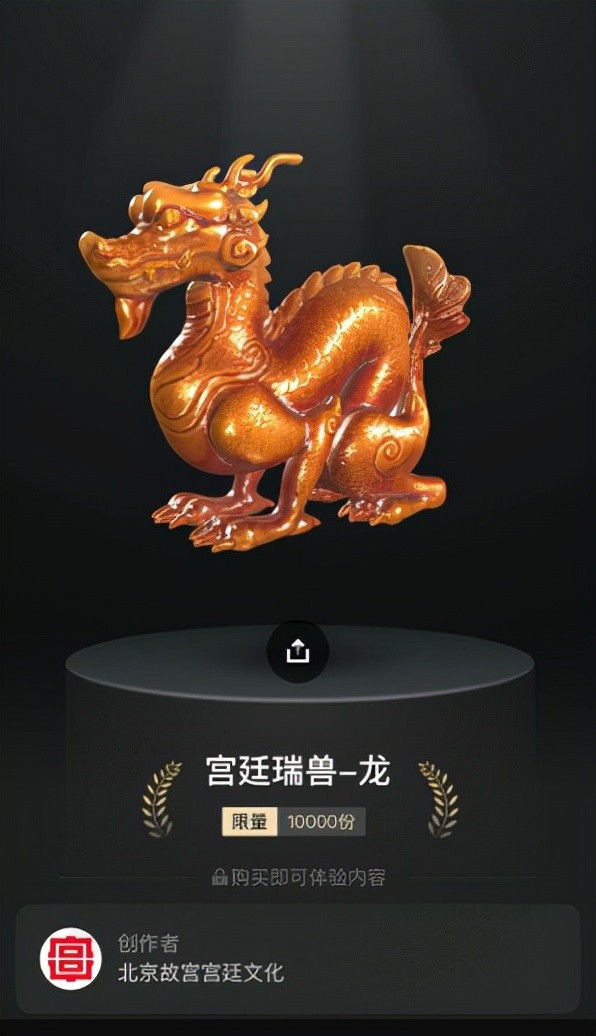NFT speculation cools down, Chinese young people face the scene “now rich, big loss tomorrow”
- Tram Ho
The NFT Bored Ape Yatch Club collection has sparked a new tech craze in China, as young people are willing to spend a few hundred thousand yuan (NDT) just to buy a picture. That suddenly became an attractive investment opportunity, causing digital collectibles trading platforms in this country to spring up like mushrooms after the rain.

NFT Bored Ape Yatch Club Collection released by Yuga Labs
NFT, which stands for “Non-Fungible Token”, or “non-fungible asset”, is a unit of data on a blockchain digital ledger. NFT is widely used in digital content such as music, pictures, and so on. With NFT, each asset will have a unique digital signature so it is unique. In other words, that property has its own “ID card” so that users can issue, buy, sell, collect and use.
In Vietnam, NFT assets are not legally recognized and therefore pose many risks to investors.
NFT is hot, why should it close?
Digital collectible property, in addition to the purpose of “collecting”, also attracts people who are not really passionate about art or support this emerging technology, but only consider it as an investment with the dream of “getting rich”. overnight”. Due to market demand, anything can become an NFT.
In China, the most popular trading platforms are Jingtan and Huanhe because they are backed by two tech giants, Alibaba and Tencent. According to the statistics of blockchain information platform Lianxin, by April 2022, Huanhe’s monthly revenue has increased sharply, reaching nearly 20 million yuan. At that time, any works released by Huanhe were sold out in an instant. For example, the NFT vinyl record “Thirteen Offers,” which was an audio recording of a talk show, 300 initial releases sold out within seconds of its release.
But in just a few short months, because Huanhe did not open a secondary market, users could not resell works to make money, so they gradually became sparse.
Two examples can be taken for comparison as follows: March 2022 when Huanhe released the digital work “Shandong aircraft carrier” (an aircraft carrier model designed, researched and built by this country), quantity participate in the draw to win the right to order up to 150,000 people. By July, when the series of digital works “China An Ky” by artist Luong The Ninh was released, the number of participants was only 28,000 people.

Digital work “Shandong aircraft carrier” on the Huanhe platform
Many other digital works on Huanhe also fell into disrepair. Users do not have a secondary market to exploit, so they do not want to buy, this is the direct cause of Huanhe’s closure.
“Getting rich overnight” on the secondary market
Buying and selling digital collectibles on the secondary market is still a “gray zone” in China. So the major platforms do not deploy, but only make money through the release of works. Smaller companies are still open. Lianhe’s iBox is considered a pioneering secondary platform.
Although iBox said it “does not support NFT speculation”, users only need to link an account with a phone number to be able to freely trade. After the platform releases a product, users can buy it and then resell it at market price, and also pay a 4.5% transaction fee to iBox.
The episode “Jade Emperor” from the classic cartoon “Tiangong Chao” in the 1960s was released for 99 yuan, but on the secondary market the price has reached several tens of thousands of yuan. In other words, these platforms only need to collect transaction fees to live.

Digital work “The Jade Emperor” is for sale for 48,500 yuan
But not all users have the opportunity to buy and sell “bargain” like that. Sina Finance newspaper quoted, on August 14, 2022, a third-year student with an account on iBox spent 8,088 yuan to buy a digital collectible. By August 25, he could only sell for 1,378 yuan, losing 6,710 yuan.
The vast majority of participants have the mentality of wanting to “hit fast and win fast”. As more people rush in, prices will skyrocket. When it was gone, the price started to stay flat, from then on it only dropped because a lot of people panicked and sold out. According to a survey by Iimedia, in 2021 in China, 53.3% of people interested in digital collectibles are young people. Even students, students also jumped in, using tuition fees to join the game.
NFT speculative acts on secondary platforms are increasing, attracting the attention of the country’s authorities to the point that a platform has to be closed after only one month of its appearance. In June of this year, the new WeChat application added provisions related to NFT transactions, stating that trading in virtual currency or digital collectibles is illegal, and prohibits all transactions. related secondary sales.
All these moves make the fever of buying and selling NFT collectibles increasingly cool.
The cooling down makes many people “calm” more

The work “Dragon” in the digital collection “The Royal Court of Animals” released by the Aintchain platform
The “People’s Daily” (China) commented that: ” At present, the legal nature, transaction methods, subjects of supervision and supervision methods with NFT are still unclear. NFT has many potential risks from speculation and money laundering; should have a cautious attitude towards NFT investment .”
The Chinese authorities have also begun to pay attention to the supervision of the NFT market and have successively issued regulations governing the development of this form. In April 2022, the China Network Finance Association, the China Bankers Association and the China Securities Association issued the ” Recommendation on the prevention of financial risks related to NFT “, which put forward rules such as securities, insurance, financial assets such as credit and precious metals are not allowed to be traded in the form of NFTs. However, most of these documents are still at the level of guidance and advocacy. , but there are no specific legal provisions.
Major platforms like Huanhe have retreated, the prices of the collections in the hands of users are starting to drop, the fever is cooling down, and when the bubble starts to burst, it may be time to re-establish order. market. Digital collectible property is still a new form, there will be a lot of room for development. But this cooling down will probably make many people calmer about the future.
Source: Sina Finance
Source : Genk
